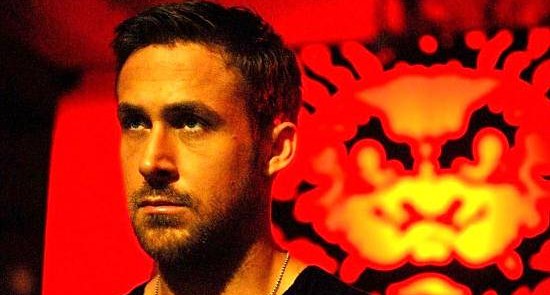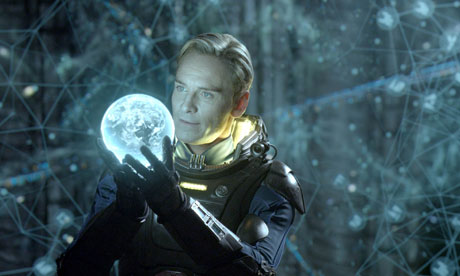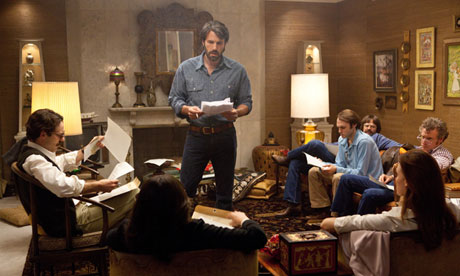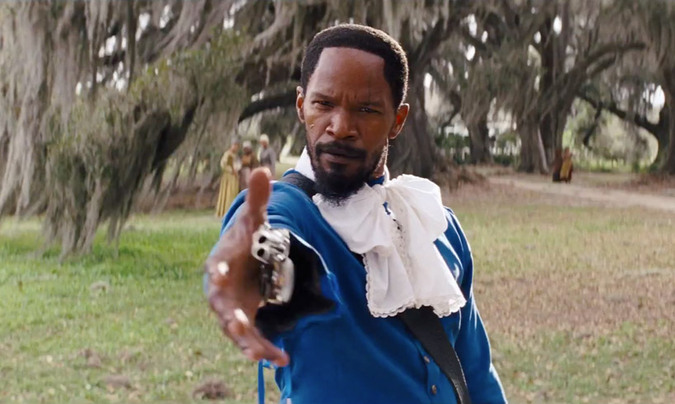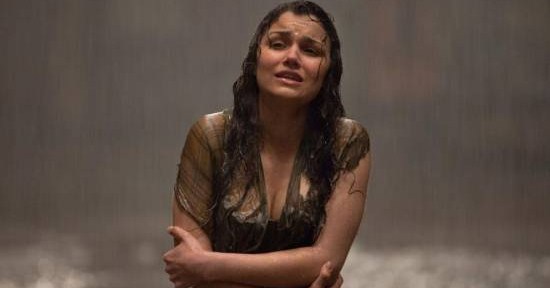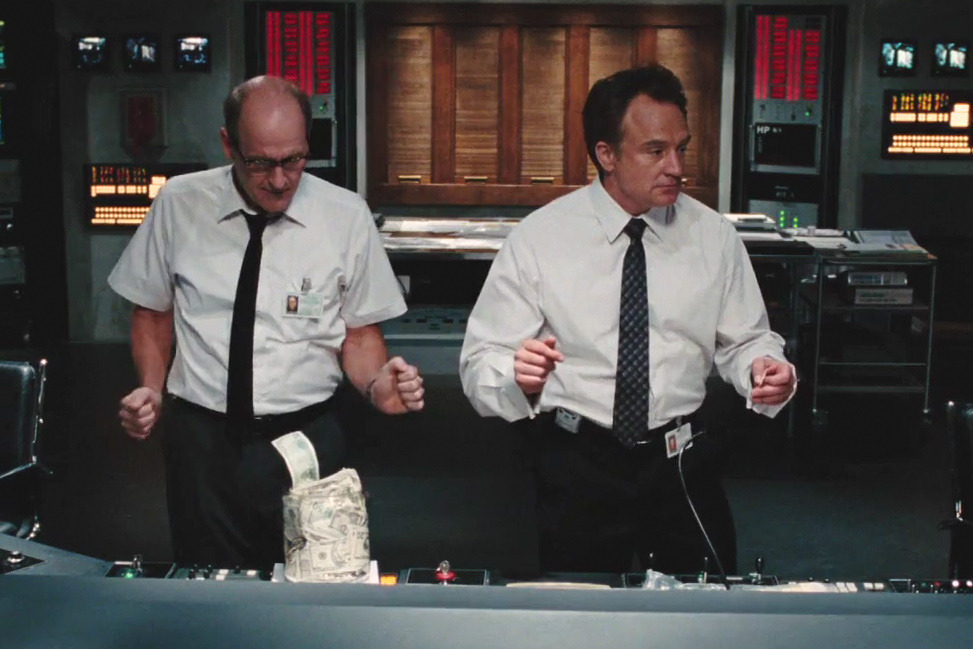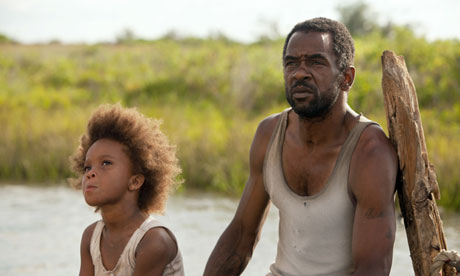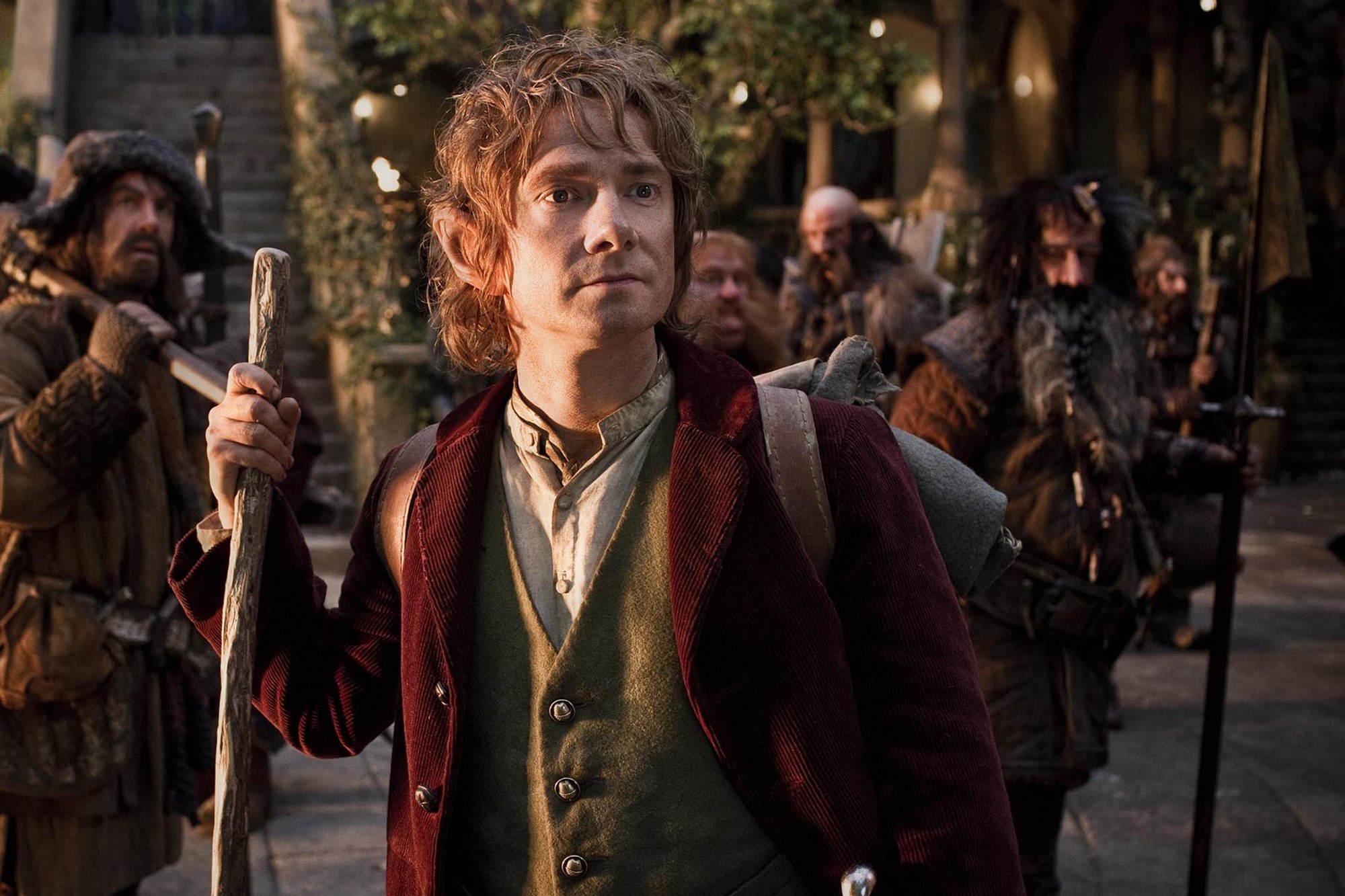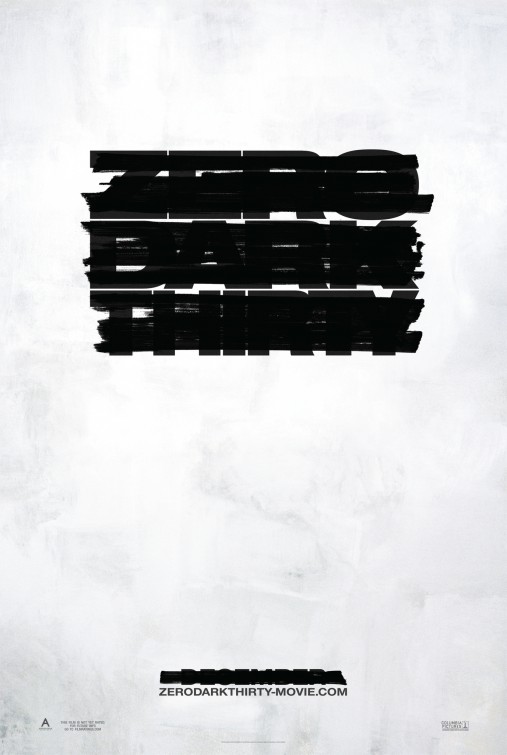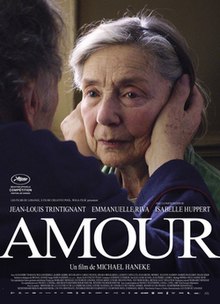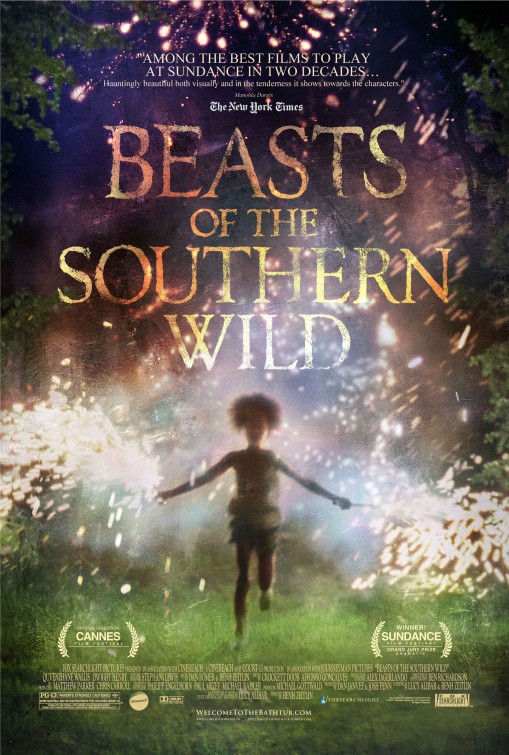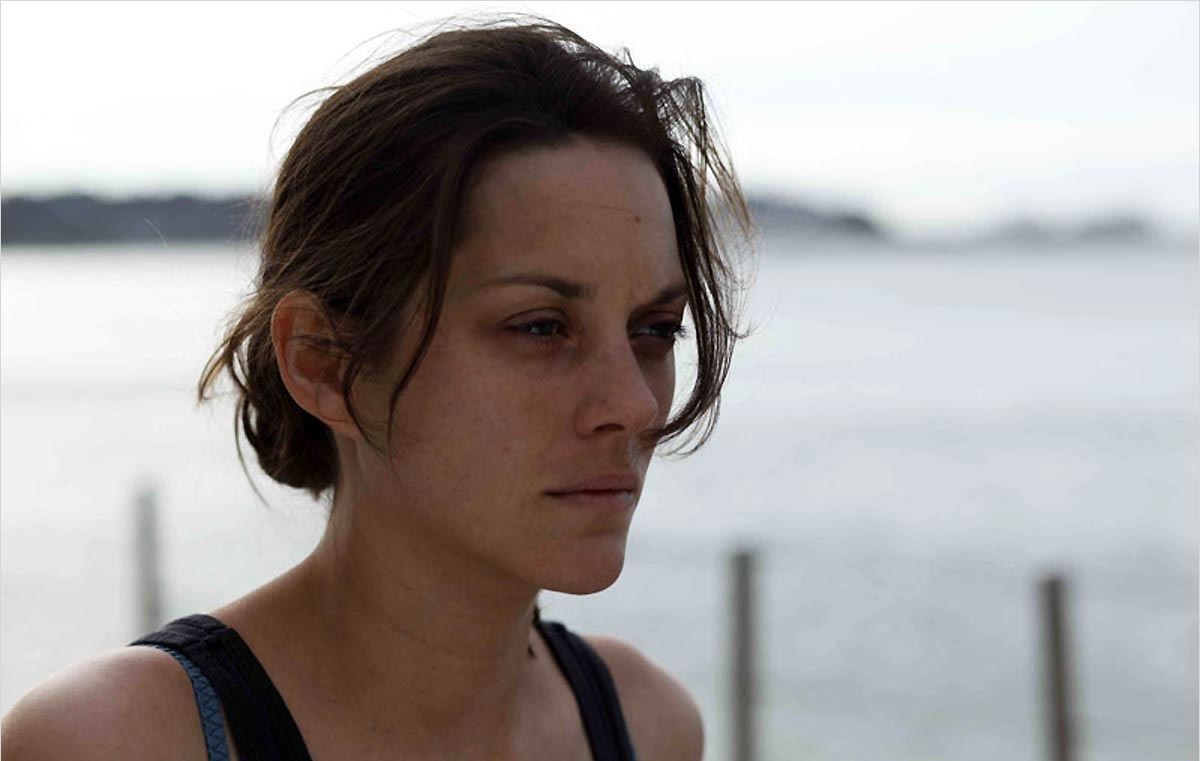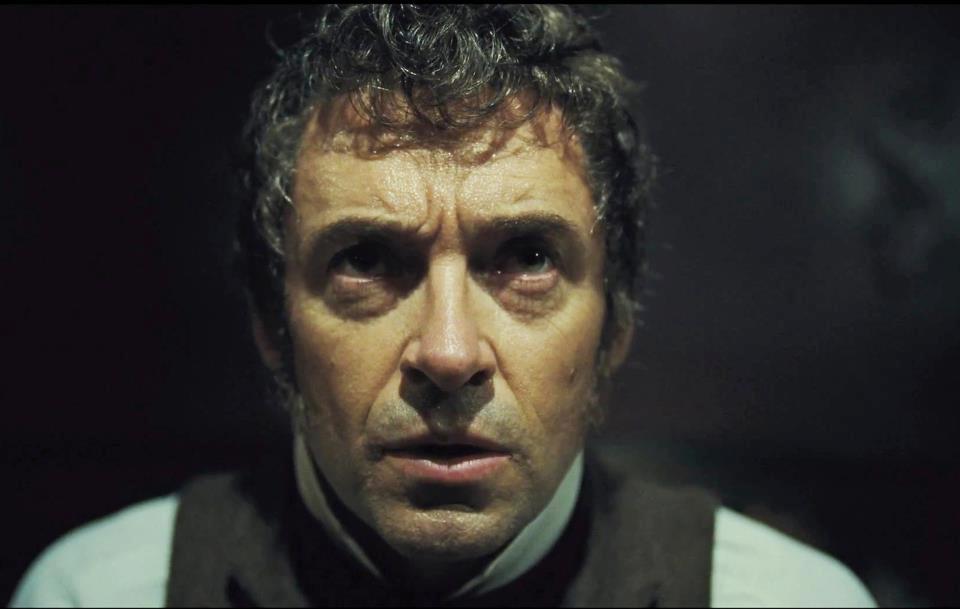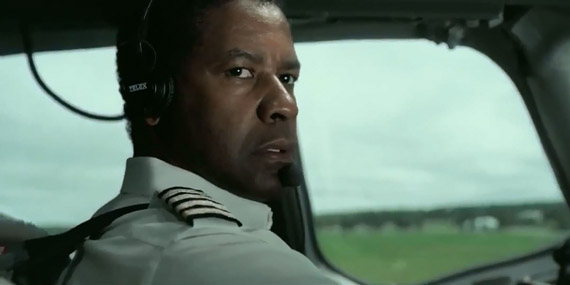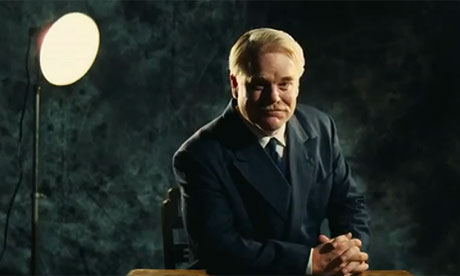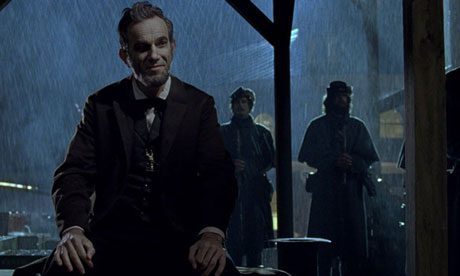The nominees are in, and with them come a number of surprises. Once again, I've been showed up in Best Picture, as nine films received a nomination for the second year in a row (I had only predicted seven, but my numbers eight and nine did go on to receive nominations, so go me?).
Lincoln leads the pack with 12 nominations, and the Academy apparently really, really loved
Life of Pi, bestowing 11 nominations upon it. Presumed frontrunner
Zero Dark Thirty only mustered up five nominations, and director Kathryn Bigelow was completely left out of the Best Director lineup. In non-BPs,
Skyfall leads with five nominations, the most ever for a Bond film; in fact,
Skyfall is the first Bond film since 1981's
For Your Eyes Only to score any sort of Oscar nomination.
So what does all this mean? The races for Best Picture and Best Director just took a strange turn; perhaps we've overestimated how much the Academy likes
Zero Dark Thirty and
Argo? Is
Lincoln the new frontrunner?
Beasts of the Southern Wild,
Amour,
Silver Linings Playbook and
Life of Pi got major boosts, so are they now the dark horses? We'll see how it all shakes out over the coming weeks.
Below is a full list of nominees, with commentary.
BEST PICTURE
Amour
Argo
Beasts of the Southern Wild
Django Unchained
Les Miserables
Life of Pi
Lincoln
Silver Linings Playbook
Zero Dark Thirty
As I stated above, nine nominees is more than I would have guessed (I expected more vote-splitting among the smaller films). Even though I really liked
Django Unchained (though I found it very problematic and uneven; more on that later), I'm surprised this wasn't too controversial or too "genre" for the Academy. Yes, Tarantino's last film,
Inglourious Basterds, was a big hit with Oscar, but it was a truly interesting film and concerned a subject right in Oscar's wheelhouse (World War II). On another note, Amour is the first non-English-language Best Picture nominee since
Letters from Iwo Jima in 2006 (and the first to be in both Best Picture and Best Foreign Language Film since 2000's
Crouching Tiger, Hidden Dragon). Here's the fun part: what film finished in 10th place, just missing a nomination? Last year, the most obvious choice was
The Girl with the Dragon Tattoo; this year, honestly, it could be anything. My guess is either
Moonrise Kingdom or
The Master, but it could very easily be
Flight or even
Skyfall.
BEST ACTOR
Bradley Cooper,
Silver Linings Playbook
Daniel Day-Lewis,
Lincoln
Hugh Jackman,
Les Miserables
Joaquin Phoenix,
The Master
Denzel Washington,
Flight
The consensus was that there were six men fighting for these five spots, and the Academy went with Phoenix over
The Sessions' John Hawkes (who, despite my bullish insistence, never really was all that safe for a nomination, despite the hooky disability angle). Phoenix wholly deserves this nomination, though; he's nothing short of mesmerizing in Paul Thomas Anderson's enigmatic film. Bradley Cooper is the recipient of this year's Jonah Hill Memorial "Wait, He's an Oscar Nominee?" Award.
BEST SUPPORTING ACTOR
Alan Arkin,
Argo
Robert De Niro,
Silver Linings Playbook
Philip Seymour Hoffman,
The Master
Tommy Lee Jones,
Lincoln
Christoph Waltz,
Django Unchained
As announcers Seth MacFarlane and Emma Stone noted, each of these men is a previous winner, with a combined total of six trophies between them. With a win, De Niro would join the exclusive club of three-time acting winners (joining Katharine Hepburn, Ingrid Bergman, Walter Brennan, Jack Nicholson, and Meryl Streep). And even though it feels like Hoffman is nominated every year, this is actually his first since 2008.
BEST ACTRESS
Jessica Chastain,
Zero Dark Thirty
Jennifer Lawrence,
Silver Linings Playbook
Emmanuelle Riva,
Amour
Quvenzhane Wallis,
Beasts of the Southern Wild
Naomi Watts,
The Impossible
This year we have both the oldest and youngest nominees in this category ever: Emmanuelle Riva (85) and Quvenzhane Wallis (9), respectively. This is still the Jessica vs. Jennifer race, but it is a surprising more diverse set of nominees than what was expected. The most notable snubs here are Marion Cotillard (
Rust & Bone), who would've given the category it's first multiple non-English performances since 1976 (
Amour and
Rust & Bone are in French), Helen Mirren (
Hitchcock), who, honestly, could have played Alfred Hitchcock's put-upon wife in her sleep, and Rachel Weisz (
The Deep Blue Sea), who had a growing passionate fanbase and likely would have been nominated if the announcement had been two weeks later.
BEST SUPPORTING ACTRESS
Amy Adams,
The Master
Sally Field,
Lincoln
Anne Hathaway,
Les Miserables
Helen Hunt,
The Sessions
Jacki Weaver,
Silver Linings Playbook
So it didn't turn out to include Dame Maggie Smith (
The Best Exotic Marigold Hotel, which was completely ignored) or Nicole Kidman (
The Paperboy), but who would have thought it would be Weaver? There's not much to her role in
Silver Linings Playbook, and it's hardly her best work, so my guess is that the film's coattails were long enough for her to squeeze in. But she's now a two-time Oscar nominee: how delightful is that?
BEST ANIMATED FEATURE FILM
Brave
Frankenweenie
ParaNorman
The Pirates! Band of Misfits
Wreck-It Ralph
Unlike last year, when a handful of foreign curiosities managed to squeeze in (including the wonderful
Chico & Rita), this year's set is mostly major-studio fare from Academy favorites, with Disney being the big winner with three films nominated here.
BEST CINEMATOGRAPHY
Seamus McGarvey,
Anna Karenina
Robert Richardson,
Django Unchained
Claudio Miranda,
Life of Pi
Janusz Kaminski,
Lincoln
Roger Deakins,
Skyfall
This is certainly an interesting collection of films, especially Deakins' inclusion for
Skyfall. Richardson was last year's winner in this category for
Hugo.
BEST COSTUME DESIGN
Jaqueline Durran,
Anna Karenina
Paco Delgado,
Les Miserables
Joanna Johnston,
Lincoln
Eiko Ishioka,
Mirror Mirror
Colleen Atwood,
Snow White and the Huntsman
It's a battle of the Snow Whites as the undisputed champ in this category in recent years (Atwood; three wins and seven nominations in the last decade) faces off with the late Ishioka, who passed away last January (she had previously won for
Bram Stoker's Dracula). This is a very rich category this year, with first nominations for Delgado and Johnston.
BEST DIRECTOR
Michael Haneke,
Amour
Benh Zeitlin,
Beasts of the Southern Wild
Ang Lee,
Life of Pi
Steven Spielberg,
Lincoln
David O. Russell,
Silver Linings Playbook
This is the category that is the most surprising to me. Gone are presumed locks Ben Affleck (
Argo) and Kathryn Bigelow (
Zero Dark Thirty), in are Zeitlin - a first-time director - and Russell, who has been mostly ignored on the campaign trail this year. I correctly guessed that Haneke would have a strong enough reputation to earn the Academy's attention, especially since
Amour is (slightly) more in their wheelhouse than his other films have been. I'm willing he's most likely to pull an upset here come Oscar night.
BEST DOCUMENTARY FEATURE
5 Broken Cameras
The Gatekeepers
How to Survive a Plague
The Invisible War
Searching for Sugar Man
The most surprising snubs here are
Mea Maxima Culpa, Alex Gibney's film about child sex abuse in the Catholic Church,
The Queen of Versailles, a portrait of the 1% at the economic collapse, and
West of Memphis, a Peter Jackson-produced doc about the West Memphis Three (the subject of last year's nominee
Paradise Lost 3: Purgatory). However, that opened the door for the fascinating music doc
Searching for Sugar Man.
The Invisible War and
How to Survive a Plague are phenomenal and very important films: if you haven't seen those, check them out ASAP.
BEST DOCUMENTARY SHORT
Inocente
Kings Point
Mondays in Racine
Open Heart
Redemption
With the exception of
Open Heart (about Rwandan kids seeking heart surgery in Sudan), all of these are about some facet of "the American dream" and American society, with New York City being the hotspot locale.
BEST FILM EDITING
William Goldenberg,
Argo
Tim Squyres,
Life of Pi
Michael Kahn,
Lincoln
Jay Cassidy and Crispin Struthers,
Silver Linings Playbook
Dylan Tichenor and William Goldenberg,
Zero Dark Thirty
Goldenberg is a double nominee this year, so congratulations to him. It's interesting that
Les Miserables didn't score a nod here, but the Oscars have always been weird about musicals: they direct and edit themselves, apparently. This category has long been a big indicator for how Best Picture will go (BP winners are usually nominees here), so it will be interesting to see who comes out on top here.
BEST FOREIGN LANGUAGE FILM
Amour (Austria)
Kon-Tiki (Norway)
No (Chile)
A Royal Affair (Denmark)
War Witch (Canada)
The biggest snubs here are France's global smash
The Intouchables (which seemed like a sure thing to be nominated and a spoiler to win) and Romania's
Beyond the Hills, which did well at Cannes this year (there's no telling what it will take for Romania to ever be nominated at this point). Chile is nominated for the first time ever this year. Interestingly enough, Canada has been on a role lately; this is their fifth nomination in the past decade (only Germany has matched that total) and third in a row. This is also
Amour's best shot at a win.
BEST MAKEUP AND HAIRSTYLING
Howard Berger, Peter Montagna and Martin Samuel,
Hitchcock
Peter Swords King, Rick Findlater and Tami Lane,
The Hobbit: An Unexpected Journey
Lisa Westcott and Julie Dartnell,
Les Miserables
The makeup category has always been one of the most puzzling ones, but this year fits the standard bill: prosthetics, fantasy elements, and plenty of the impoverished. All three of these are very showy makeup jobs; interesting that this is the only place
Hitchcock shows up this year.
BEST ORIGINAL SCORE
Dario Marianelli,
Anna Karenina
Alexandre Desplat,
Argo
Mychael Danna,
Life of Pi
John Williams,
Lincoln
Thomas Newman,
Skyfall
This is legendary composer John Williams' 46th career nomination, and he's likely to win his first trophy since 1993. Newman's inclusion is surprising, since
Skyfall wasn't listed as a major contender in this category. It would have been very interesting to see
Beasts of the Southern Wild land one here, though many had predicted
Cloud Atlas would get a nod here (
Cloud Atlas ended up with no nominations).
BEST ORIGINAL SONG
"Before My Time," music and lyric by J. Ralph;
Chasing Ice
"Everybody Needs a Best Friend," music by Walter Murphy, lyric by Seth MacFarlane;
Ted
"Pi's Lullaby," music by Mychael Danna, lyric by Bombay Jayashri;
Life of Pi
"Skyfall," music and lyric by Adele Adkins and Paul Epworth;
Skyfall
"Suddenly," music by Claude-Michel Schonberg, lyric by Herbert Kretzmer and Alain Boublil;
Les Miserables
This is another category that is hard to predict or make sense of (and that I have argued in the past should be done away with), but sure things "Suddenly" and "Skyfall" making the cut is no surprise. More interesting is what else did: a number from
Ted, a song from a documentary ("Before My Time"), and a gorgeous number from
Life of Pi. At least a five-wide field is better than last year's paltry two nominees.
BEST PRODUCTION DESIGN
Anna Karenina; production design by Sarah Greenwood, set decoration by Katie Spencer
The Hobbit: An Unexpected Journey; production design by Dan Hennah, set decoration by Ra Vincent and Simon Bright
Les Miserables; production design by Eve Stewart, set decoration by Anna Lynch-Robinson
Life of Pi; production design by David Gropman, set decoration by Anna Pinnock
Lincoln; production design by Rick Carter, set decoration by Jim Erickson
The category formerly known as Best Art Direction isn't all that surprising this year. There's the return to everyone's favorite hobbit-holes, a few opulent period pieces, and a visually inventive drama in
Life of Pi. It is a bit surprising to not see
Django Unchained nominated here, given the Western town Tarantino had built from scratch, nor was
Prometheus recognized for it's impressive sets. Most surprising is the snub of
Moonrise Kingdom: how no Wes Anderson film has ever scored in this category is mind-boggling to me.
BEST ANIMATED SHORT FILM
Adam and Dog
Fresh Guacamole
Head Over Heels
Maggie Simpson in "The Longest Daycare"
Paperman
And with that,
The Simpsons are finally Oscar-nominated. Disney's
Paperman is truly magnificent.
BEST LIVE-ACTION SHORT FILM
Asad
Buzkashi Boys
Curfew
Death of a Shadow (Dood van een Schaduw)
Henry
I don't know much about this category, so I'll abstain from commenting on it.
BEST SOUND EDITING
Erik Aadahl and Ethan Van der Ryn,
Argo
Wylie Stateman,
Django Unchained
Eugene Gearty and Philip Stockton,
Life of Pi
Per Hallberg and Karen Baker Landers,
Skyfall
Paul N.J. Ottosson,
Zero Dark Thirty
For the most part, the sound categories are where summer blockbusters have a best shot at a nomination. But with the exception of
Skyfall, both are almost all Best Picture nominees. It'll be interesting to see who comes out on top here.
BEST SOUND MIXING
John Reitz, Gregg Rudloff and Jose Antonio Garcia,
Argo
Andy Nelson, Mark Paterson and Simon Hayes,
Les Miserables
Ron Bartlett, D.M. Hemphill and Drew Kunin,
Life of Pi
Andy Nelson, Gary Rydstrom and Ronald Judkins,
Lincoln
Scott Millan, Greg P. Russell and Stuart Wilson,
Skyfall
Musical? Check. Action films? Check. Prestigious period piece? Check. There's nothing too surprising here either.
BEST VISUAL EFFECTS
Joe Letteri, Eric Saindon, David Clayton and R. Christopher White,
The Hobbit: An Unexpected Journey
Bill Westenhofer, Guillaume Rocheron, Erik-Jan De Boer and Donald R. Elliott,
Life of Pi
Janek Sirrs, Jeff White, Guy Williams and Dan Sudick,
Marvel's The Avengers
Richard Stammers, Trevor Wood, Charley Henley and Martin Hill,
Prometheus
Cedric Nicolas-Troyan, Philip Brennan, Neil Corbould and Michael Dawson,
Snow White and the Huntsman
Christopher Nolan's Batman trilogy didn't go out with the bang many expected (but how could you follow up
The Dark Knight with complete success?), but Oscar-wise it ends with a whimper: zero nominations for
The Dark Knight Rises. The year's highest-grossing film,
The Avengers, gets it's only nod here. What's most surprising is that
The Impossible was not nominated, despite many arguing that the tsunami sequence is far superior to that of 2010 nominee
Hereafter.
BEST ADAPTED SCREENPLAY
Argo; screenplay by Chris Terrio
Beasts of the Southern Wild; screenplay by Lucy Alibar & Benh Zeitlin
Life of Pi; screenplay by David Magee
Lincoln; screenplay by Tony Kushner
Silver Linings Playbook; screenplay by David O. Russell
I'm surprised to see
Life of Pi nominated here, given the clunky framing device Magee employs; the Academy's love for the film seems to have spread all around. Stephen Chbosky's screenplay for
The Perks of Being a Wallflower - adapted from his own novel - is a critical favorite, but it just didn't hit the Academy's sweet spot.
BEST ORIGINAL SCREENPLAY
Amour; written by Michael Haneke
Django Unchained; written by Quentin Tarantino
Flight; written by John Gatins
Moonrise Kingdom; written by Wes Anderson & Roman Coppola
Zero Dark Thirty; written by Mark Boal
There were a number of terrific screenplays eligible for this category this year, so it's not surprising that there are a few major snubs. Foremost among them is Paul Thomas Anderson for
The Master; there's no doubt that the film will become a film-class standard years from now, but at the moment it's dense and divisive. This is a category that often gives films that don't stand a chance anywhere else a nod, so I'm a little surprised
Looper didn't get recognized here. This is the first time Tarantino has been recognized for writing only. For the second year in a row, one of the nominees is in a language other than English (Asghar Farhadi's screenplay for
A Separation last year was in Farsi,
Amour is French). Mark Boal has only written two screenplays so far, and they've both been nominated for Original Screenplay; not a bad start to a career.





